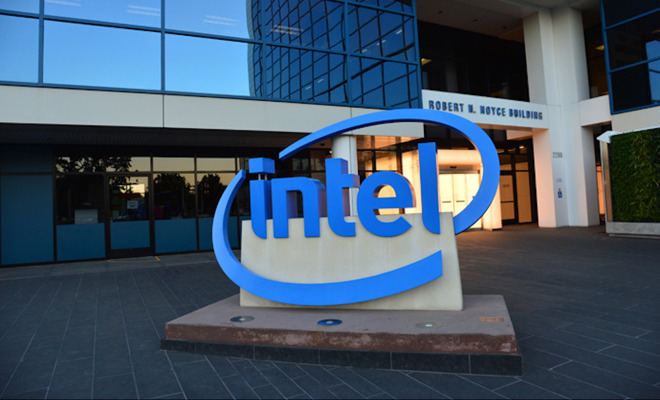Intel under pressure to explore strategic options amid chip industry challenges
Hedge fund Third Point is urging Intel to make some big business changes in the face of losing chip supremacy to efforts by Apple, Amazon, Microsoft, and TSMC.

Credit: Intel
Third Point CEO and founder Daniel Loeb wrote a letter to Intel chairman Omar Ishrak on Tuesday calling for the company to boost its position as a provider of chips for computers and data centers, Reuters reported. Third Point has a nearly $1 billion stake in the chipmaker.
In his letter, Loeb called Intel's most pressing task its "human capital management issue." He cited the fact that many Intel chip designers have left the company after being "demoralized by the status quo."
"Without immediate change at Intel, we fear that America's access to leading-edge semiconductor supply will erode, forcing the U.S. to rely more heavily on a geopolitically unstable East Asia to power everything from PCs to data centers to critical infrastructure and more," Loeb wrote.
According to Loeb, Intel has lost its pole position in chip making to Samsung and Apple's chip fabricator Taiwan Semiconductor Manufacturing Company (TSMC). He added that Intel is also losing market share to AMD and missing out on the artificial intelligence market dominated by NVIDIA.
The hedge fund CEO also noted that several Intel customers are currently developing their own first-party silicon and sending those designs to contract manufacturers, bypassing Intel.
Apple recently launched its first M1 Mac devices with proprietary Apple Silicon chips. Microsoft and Amazon are also said to be following Apple's lead.
Intel has promised to continue supporting Apple even as it announced its plans to move to first-party processors in its Mac lineup. At the time, Intel also insisted that its chips provided a better experience for consumers.
As possible solutions, Loeb said that Intel should retain an investment advisor to "evaluate strategic alternatives." Those could include separating its chip design from its semiconductor manufacturing business.
Loeb added that Intel could offer new solutions to retain customers like Apple, Microsoft, and Amazon instead of letting them send manufacturing away.
Intel last reported earnings in October. According to CNBC, the company's Q3 fiscal results were better than expected because of continued work-from-home and remote education trends, but showed some weakness in the data center business.

Credit: Intel
Third Point CEO and founder Daniel Loeb wrote a letter to Intel chairman Omar Ishrak on Tuesday calling for the company to boost its position as a provider of chips for computers and data centers, Reuters reported. Third Point has a nearly $1 billion stake in the chipmaker.
In his letter, Loeb called Intel's most pressing task its "human capital management issue." He cited the fact that many Intel chip designers have left the company after being "demoralized by the status quo."
"Without immediate change at Intel, we fear that America's access to leading-edge semiconductor supply will erode, forcing the U.S. to rely more heavily on a geopolitically unstable East Asia to power everything from PCs to data centers to critical infrastructure and more," Loeb wrote.
According to Loeb, Intel has lost its pole position in chip making to Samsung and Apple's chip fabricator Taiwan Semiconductor Manufacturing Company (TSMC). He added that Intel is also losing market share to AMD and missing out on the artificial intelligence market dominated by NVIDIA.
The hedge fund CEO also noted that several Intel customers are currently developing their own first-party silicon and sending those designs to contract manufacturers, bypassing Intel.
Apple recently launched its first M1 Mac devices with proprietary Apple Silicon chips. Microsoft and Amazon are also said to be following Apple's lead.
Intel has promised to continue supporting Apple even as it announced its plans to move to first-party processors in its Mac lineup. At the time, Intel also insisted that its chips provided a better experience for consumers.
As possible solutions, Loeb said that Intel should retain an investment advisor to "evaluate strategic alternatives." Those could include separating its chip design from its semiconductor manufacturing business.
Loeb added that Intel could offer new solutions to retain customers like Apple, Microsoft, and Amazon instead of letting them send manufacturing away.
Intel last reported earnings in October. According to CNBC, the company's Q3 fiscal results were better than expected because of continued work-from-home and remote education trends, but showed some weakness in the data center business.

Comments
Servers will probably begin a migration to ARM for power efficiency, and game developers go where the customers are.
I really believe that Apple Silicon will strongly attract the OS agnostic - the price/performance/efficiency will be difficult to resist for the average consumer computer user, unless you're deeply mired in Windows legacy infrastructure.
I regret buying Intel Gen 10 and got subpar speed that is slower than cheaper AMD. Now M1 MacBook Air is cheaper but faster than the fastest Intel MacBook Pro.
User Experience are important if you make device with software. Windows vs Mac or Android vs iPhone are affected by experience design. But there is no such thing for chipmaker. Consumer want nothing other than 1) faster, 2) cheaper, and 3) more efficient CPU. Intel does bad in all of these.
So, this idiot thinks a letter is all it takes? Hillarious.
Apple has spent lots of $$$ and now have probably the fastest cpu in town for laptops. The Apple crew will have in tow years or less their entire product line on their own hardware giving them complete control of their product and on their own schedule. Since Apple is not a majoring terms of total numbers computer builder, there should be no anti-trust issues when all their products have only their processors.
It is really sad that my fully loaded over $6,000 list 16" Mac Book Pro laptop I bought in December 2019 is out performed by the new MacBook Air except for screen size.
That to me is real processor progress and innovation that Intel forgot about over ten years ago.